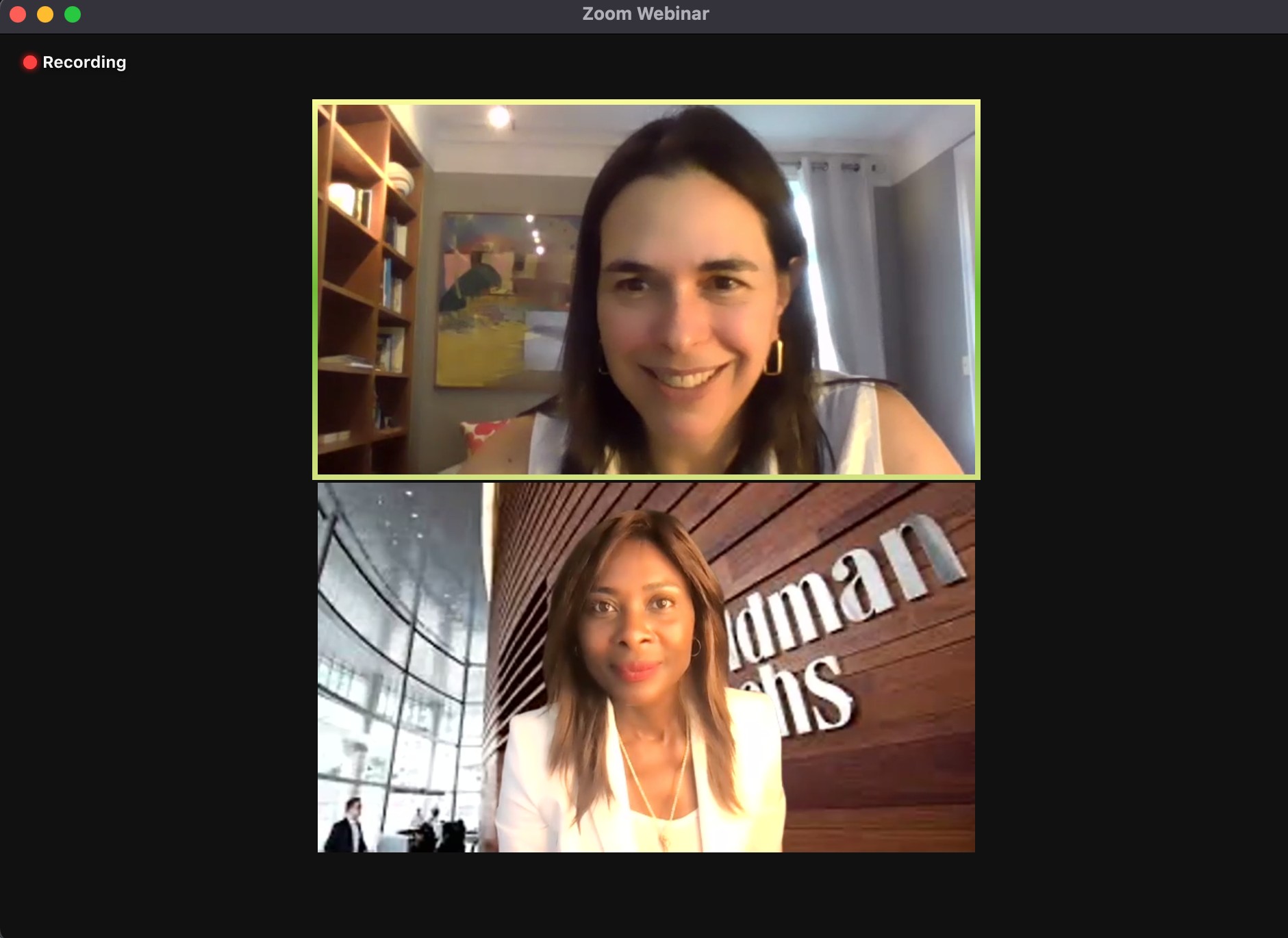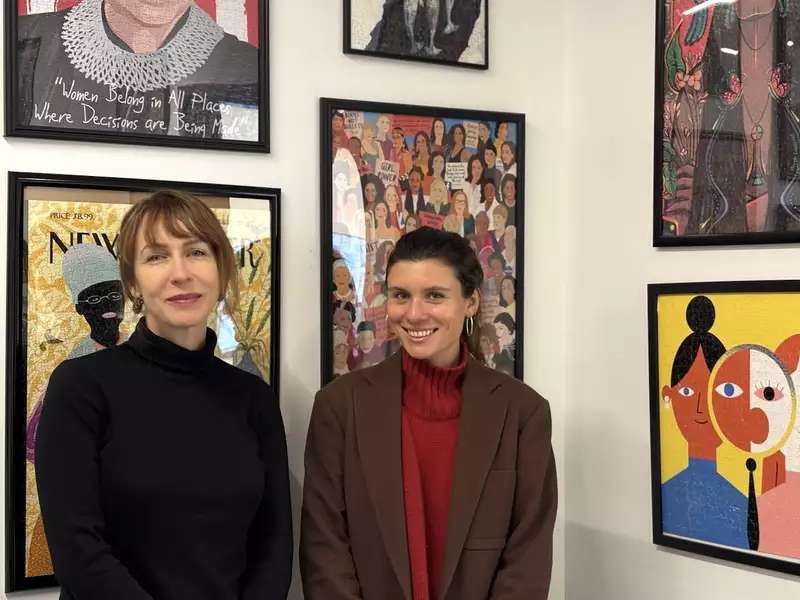Asahi Pompey, global head of corporate engagement and president of the Goldman Sachs Foundation, and her team have a big vision: to close the racial wealth gap for Black women in the U.S. Under Pompey’s leadership, the Goldman Sachs Foundation created the One Million Black Women initiative with a commitment to allocate $10 billion in direct investment capital to address the barriers Black women face within healthcare, education, housing, and small business. Reducing this wealth gap by positively impacting the lives of at least one million Black women could increase the U.S. GDP by $450 billion, according to Goldman Sachs research.
On June 17, Pompey joined President Sian Leah Beilock in conversation for an exclusive online event, presented by Beyond Barnard, to discuss One Million Black Women, the importance of financial wellness for women, and what it means to “burn the boat.”
One Million Black Women is just the tip of the iceberg for Pompey’s career. Since joining Goldman in 2006, Pompey has also overseen other existing philanthropic initiatives, including 10,000 Small Businesses, 10,000 Women, Goldman Sachs Gives — including the COVID-19 Relief Fund and the Fund for Racial Equity — and Community Teamworks, the company’s corporate volunteer program. Since its launch in 2009, the 10,000 Small Businesses program has already exceeded its goal, reaching more than 10,000 businesses in the U.S. and the U.K. to provide practical business education, support services, and access to capital at no cost to participants. The 10,000 Women initiative has been similarly successful, benefiting more than 10,000 women in over 100 countries.
For Pompey, this work is activism — helping to move the needle on systemic inequality and racial injustice. At a town hall for Goldman employees in June 2020, Pompey shared a letter she wrote to her 11-year-old son about the difficulties of navigating the world as a Black person. “My privilege, my education from Swarthmore and Columbia Law, my status at Goldman Sachs, my class — all of that does not insulate me from acts of racism,” Pompey told Beilock about that town hall. “The person you’re sitting next to, their lived experience is not like yours when they leave [the room]. Money doesn’t change that, and education and degrees after your name don’t change that. We’ve got to change it as a collective and as a society.”
Some key insights from the conversation with Pompey:
On the importance of having diverse voices in the C-suite:
Asahi Pompey: “Coming from the background I come from, I take a different eye to our social impact work. I’m sometimes an unusual voice in the room saying, ‘I don’t think we should do it that way. And I think we should be doing it differently.’ I think people have been very, very open to that — that’s part of the Goldman Sachs secret sauce, if you will, that you have this sort of rich debate about different ideas. Having those multiplicities of perspectives across the room — intellectual, ethnic, racial backgrounds, socioeconomic class — makes for a really, really rich discussion, sometimes longer, sometimes harder, but harder in a good way.”
On the impact of supporting women-owned businesses:
“10,000 Women — think about it as an MBA, free of charge, by Goldman Sachs, to women entrepreneurs in developing countries. We did some research and found that in communities where there were women entrepreneurs, so many things happened. One is that women help other women and girls, so there was this community lift. Two, they employ men in their communities as well. Three, you see other social change happening when a woman is a business owner: You see more girls going to school, you see that economic power now leading to social power as well. A woman owning a business is tipping the scale in so many ways more broadly across communities, and it has a multigenerational impact. We’ve been at it now for 13 years, and we’ve worked with women entrepreneurs in over 100 countries, providing education, access to capital, as well as a network.”
On how a liberal arts education translates to the boardroom:
“We need liberal arts majors at Goldman. That richness of learning how to debate and dissect an issue and see it from all angles [that you get] in small classroom settings, that is much of what happens in a corporation. [It] isn’t in these big rooms with hundreds of people. It’ll feel very much like your classes that you’re having right now at Barnard, where it’s a small group of people that are in a room, where they’ve got a problem, and they’re going to meet on a weekly basis to solve it. So that whole environment of debate and discussion and analysis is what corporations are very much about.”
On the best advice Pompey’s ever received:
“This is for your recent grads or people who are going to graduate soon: One of my colleagues who’s since left the firm, Bunty Bohra, said, ‘Burn the boat.’ Think about [any] decision you make as an island, and you went there on a boat, and you burned the boat. And so really cast your eyes not on what could have been but where you are right now, and how you’re going to maximize this opportunity. Now, there may come a time when you need to cut down some trees and build another boat and get the heck off that island. But in the meantime, give it the time it needs. No career is a straight line; it’s going to be bumpy. So burn the boat.”
*Responses have been edited for length and clarity.
Watch the full conversation between Pompey and Beilock below:



